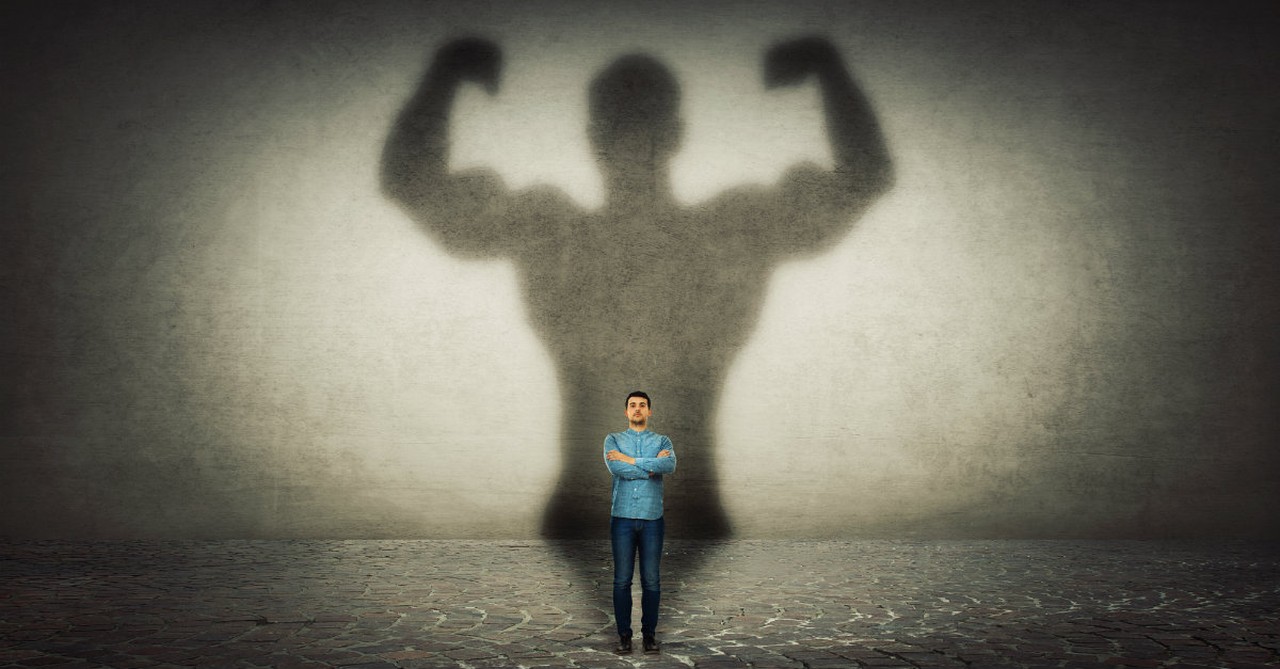6 Things Christians Should Consider When it Comes to Caffeine, Energy, and Sleep

It was a Sunday morning that began like many that had come before it. I arrived early at our church to help set things up for our Sunday service, and with a half hour to spare, I had everything in order.
The only thing missing was one of our volunteers, a 20-year-old college student named Sean. Thankfully, Sean eventually did show up five minutes before service ended. However, when he walked through the door, I could see that something was very wrong.
What I soon learned was that Sean had suffered a pretty serious form of cardiac arrhythmia on his way to church. It was so bad that he was forced to pull over and call the paramedics, who arrived in time to help him.
But why did this happen?
Apparently, Sean hadn’t slept in over three days as he rushed to finish a few last-minute projects for school. To keep himself awake, Sean had also loaded up on coffee and energy drinks. The end result? A relatively healthy 20-year-old college kid had strained his heart beyond its limits. By the grace of God, Sean turned out okay and has lived a much healthier life ever since.
However, stories like these, rare as they may be, do provide a framework to discuss the relationship that exists between taking care of our physical bodies, striving to do good work, and accepting our limitations as finite human beings.
As a disclaimer, individual health decisions should always be discussed with a qualified doctor or physician. Nevertheless, there are a handful of general practices and biblical perspectives that can help us live more healthy, fruitful, and God honoring lives.
Here, then, are six things that Christians should consider when it comes to caffeine, energy, and sleep.
Photo Credit: ©Getty Images/Tatyana Tomsickova
1. Hard Work Should Be a Hallmark of Our Faith

1. Hard Work Should Be a Hallmark of Our Faith
SLIDE 1 OF 6
Let’s use Sean’s story as a case study. Shall we? It does not take a neurobiologist to figure out where exactly Sean had gone wrong. It wasn’t that he had decided to have a cup of coffee in the morning or stay up an extra hour to get a paper done.
Sean got himself into trouble when he deprived his body of what it needed (sleep) while filling it with too much of what it didn’t (caffeine).
But what motivated him to do this?
As I mentioned, Sean was a student. In fact, he was one of the hardest-working students I have ever met. The problem wasn’t his work ethic.
I actually commend him for wanting to finish what he had started. The problem was Sean’s time management and his willingness to push his body beyond what it was created to endure.
Christians should be known for their strong work ethic. In the world and the church, we should have a reputation for doing good work and always going the extra mile, all for the glory of God. Hard work is never something we should shun or run away from.
In fact, the Bible teaches us to not be lazy or idle (Proverbs 10:4, 20:4), but instead to “make the most of every opportunity” (Ephesians 5:16-17), recognizing that our life on this earth is but a “vapor” (James 4:14).
Should there be a balance between hard work and rest? Absolutely. Is it possible to overwork ourselves to the point of exhaustion? Sean would say so. However, in the gospels, Jesus Himself regularly referenced the work He was called to do (John 4:34, 5:36, 17:4).
He also referred to His disciples, both present and future, as fellow laborers, workers, and harvesters (Matthew 9:37-38; Luke 10:7). Similarly, the apostle Paul prided himself on his labors for the sake of the gospel (1 Corinthians 15:10; 2 Corinthians 1:28-29; Colossians 1:28-29).
In many ways, hard work is God-honoring. However, this leads us to another question: where does the energy to do our work come from?
Photo Credit: ©GettyImages/svetikd
2. God Provides the Strength and Energy We Need

2. God Provides the Strength and Energy We Need
SLIDE 2 OF 6
As humans, we all have work to do. Whether that involves working a job to provide for our material needs or laboring to advance the kingdom of God, we all require energy in our physical bodies to make things happen.
Yes, sin’s curse means that our work will be toilsome and difficult at times (Genesis 3:17-19). However, the work we do can also bring us joy and bring glory to God. Nevertheless, we are not designed to operate continuously.
The world may push us to work harder, longer, and faster, but without a healthy balance of work and rest, our bodies will begin to break down. There has to be balance.
Too much work can lead to burnout, exhaustion, and defeat. Too little work leads to idleness, laziness, and ruin (Proverbs 6:9-10, 20:13). Both can be sinful. So, what is the solution?
We all have seasons where our work demands more of us than we feel we have the strength or energy to perform. We do get tired. We do lose steam. However, what did the prophet Isaiah write?
“The Everlasting God, the Lord, the Creator of the ends of the earth does not become weary or tired… He gives strength to the weary, and to him who lacks might He increases power. Though youths grow weary and tired, and vigorous young men stumble badly, yet those who wait for the Lord will gain new strength; they will mount up with wings like eagles, they will run and not get tired, they will walk and not become weary” (Isaiah 40:28-31).
Even within our God-given limits, when we set our eyes on God, rely on His strength, and seek first His kingdom (Matthew 6:33), God provides the energy we need when we need it according to His supernatural and abundant grace (Philippians 4:19; see also Isaiah 41:10; Romans 8:26; Philippians 4:12-13; 1 Timothy 1:12; 2 Timothy 2:1).
Photo Credit: ©GettyImages/BulatSilvia
3. You May Not Have Energy Because You’re Not Taking Care of Your Body

3. You May Not Have Energy Because You’re Not Taking Care of Your Body
SLIDE 3 OF 6
Having worked with teens and college students for most of my life, I will often run into young men who are always tired, always worn down, and always stressed.
While we know that God provides strength and energy to the weak and weary (Jeremiah 31:25), sometimes I have a more practical question to ask:
Are you taking care of yourself?
Are you eating nutritious food? Are you drinking enough water? Do you exercise? Do you get regular sunlight? Are you getting quality sleep?
These are practical disciplines that can influence how alert and energetic we feel throughout the day. Sometimes, we simply do not have the energy to do the work God has given to us because we aren’t taking care of our bodies. (Matthew 25:14-30; Romans 12:1-2).
In other terms, we are not caring for the temple where God resides (1 Corinthians 3:16-17). Of course, this does not mean that an obsession with diet and exercise can change God’s plan for our lives.
Job himself concluded that “a person’s days are determined; you have decreed the number of his months and have set limits he cannot exceed” (Job 14:5). Nevertheless, as we are called to be good stewards of our time, talents, and money, we should also strive to be good stewards of the body God has given us.
We cannot change the years, but we can seek to have the vigor and energy in Christ and in more disciplined, healthy living to make those years as fruitful and productive as possible.
Photo Credit: ©Getty Images/Dragana991
4. God Invites Us to Rest

4. God Invites Us to Rest
SLIDE 4 OF 6
When God had completed His creation, the Bible tells us that He saw that what He created was good, “and He rested on the seventh day” (Genesis 2:2). God was not tired. He did not need to recharge the way we do. Nevertheless, God set aside a day for rest and sanctified it as a blessing for His creation.
Unlike God, our work is never fully complete. How, then, do we find peace and contentment in such daily incompleteness? We recognize that God is God; we are not. Second, we accept the gracious gift of sleep and rest that God invites us to enjoy.
Are we “diligent to enter that rest?” (Hebrews 4:9-10), or do we seek to do more and push ourselves harder than God asks us to?
In my experience, those who busy themselves with work God did not assign and burden themselves with responsibilities God did not lay upon them are often the ones who are the most anxious, tired, and unhealthy in life.
For various reasons, some medical, many people do not get the quality sleep their body needs. In the short term, sleep deprivation can dramatically impact their mental, emotional, and physical performance.
Over time, consistently poor sleep can have even more dire health consequences. Contemporary sleep science confirms what the Bible has been telling us all along. Good sleep is vital for our health and well-being.
Of course, the Bible makes clear that idleness and too much sleep are not the same as God’s rest. However, those who go where the Lord leads, do what the Lord asks, and humbly rely on the Lord for energy are often the most free, energetic, and at peace in life (Isaiah 26:3).
They can work hard then end their day in sleep that is both sweet and replenishing (Proverbs 3:24) because they haven’t placed upon themselves a burden of responsibility God never meant for them to carry either.
Rather, they look to the Lord to sustain them (Psalms 3:5, 4:8, 23:1-2, 37:7; Matthew 6:25-24, 11:28-30; Philippians 4:6-7) and allow themselves to rest in the shadow of His power and provision.
Photo Credit: ©Getty Images/Beli_photos
5. Caffeine Can Have Health Benefits… for Some

5. Caffeine Can Have Health Benefits… for Some
SLIDE 5 OF 6
Sean’s story may be a cautionary tale exposing the health risks of prolonged sleep deprivation. However, there is another proverbial elephant in the room that should also be addressed: caffeine.
It is estimated that nearly 90% of adults in North America consume some form of caffeine, with 50% of teens and adolescents also consuming food or drinks with caffeine in them. But what exactly is caffeine?
In scientific terms, caffeine is a naturally occurring drug/stimulant found in things like coffee, cacao beans, teas, yerba mate, and kola nuts. It can also be used as an additive in sodas and energy drinks.
When consumed, caffeine stimulates the brain and blocks the neurotransmitters that make us feel drowsy or tired. For this reason, many people drink coffee or tea to help them temporality combat fatigue.
Unlike other drugs or illicit substances that have been proven to impair one’s judgment or dull the senses, caffeine can, in moderate amounts, improve some people’s mental and physical state while temporarily increasing focus and alertness.
As Christians, when we consider those verses that encourage us to be spiritually “awake,” “sober-minded,” and “alert” (1 Thessalonians 5:4-8; 2 Timothy 4:5; 1 Peter 1:13, 4:7, 5:8), we can see how caffeine might be of use to some people at certain times in the day.
Of course, the adverse effects of excessive caffeine consumption, such as anxiety, insomnia, irritability, addiction, and, in extreme cases, disorientation, hallucination, and an irregular heartbeat, have been documented.
Photo Credit: ©GettyImages/Bobex-73
6. Caffeine Consumption Need Not Become a Divisive Issue

6. Caffeine Consumption Need Not Become a Divisive Issue
SLIDE 6 OF 6
There was a time in my life when a very young and very immature version of myself used to criticize those who needed a cup of coffee first thing in the morning.
Not unlike the believer Paul warned about in Colossians, who judged people by what they eat or drink, my “caffeine criticism” was really nothing more than “false humility” that had nothing to do with God’s Word or plan for our lives (Colossians 2:16-23).
There are many in the church who will avoid caffeine for justifiable reasons and others who will embrace the freedom God has given them to enjoy a cup of coffee or tea every now and then. Moderated caffeine consumption need not become a divisive issue.
Should caffeine be a substitute for the spiritual strength and energy that God provides? No. But can caffeine provide a temporary boost of energy or enhanced clarity and alertness? Of course. Can it also come with a crash, jitters, or potential withdrawal-like symptoms?
That is also true. It is when we overindulge or consume things like caffeine in excess that we often find ourselves in potentially harmful situations.
We may push ourselves to work harder, faster, and longer to get more done. That is a pattern of this world, which views success very differently than God does.
However, when we rely on God’s strength and energy, trust Him to provide for our physical and material needs, and are faithful to do what He asks of us and little more, we will often enjoy a more productive, content, and God-honoring life. In the end, it is a much healthier and fruitful way to live.
Photo Credit: ©GettyImages/fizkes

Originally published May 07, 2024.






